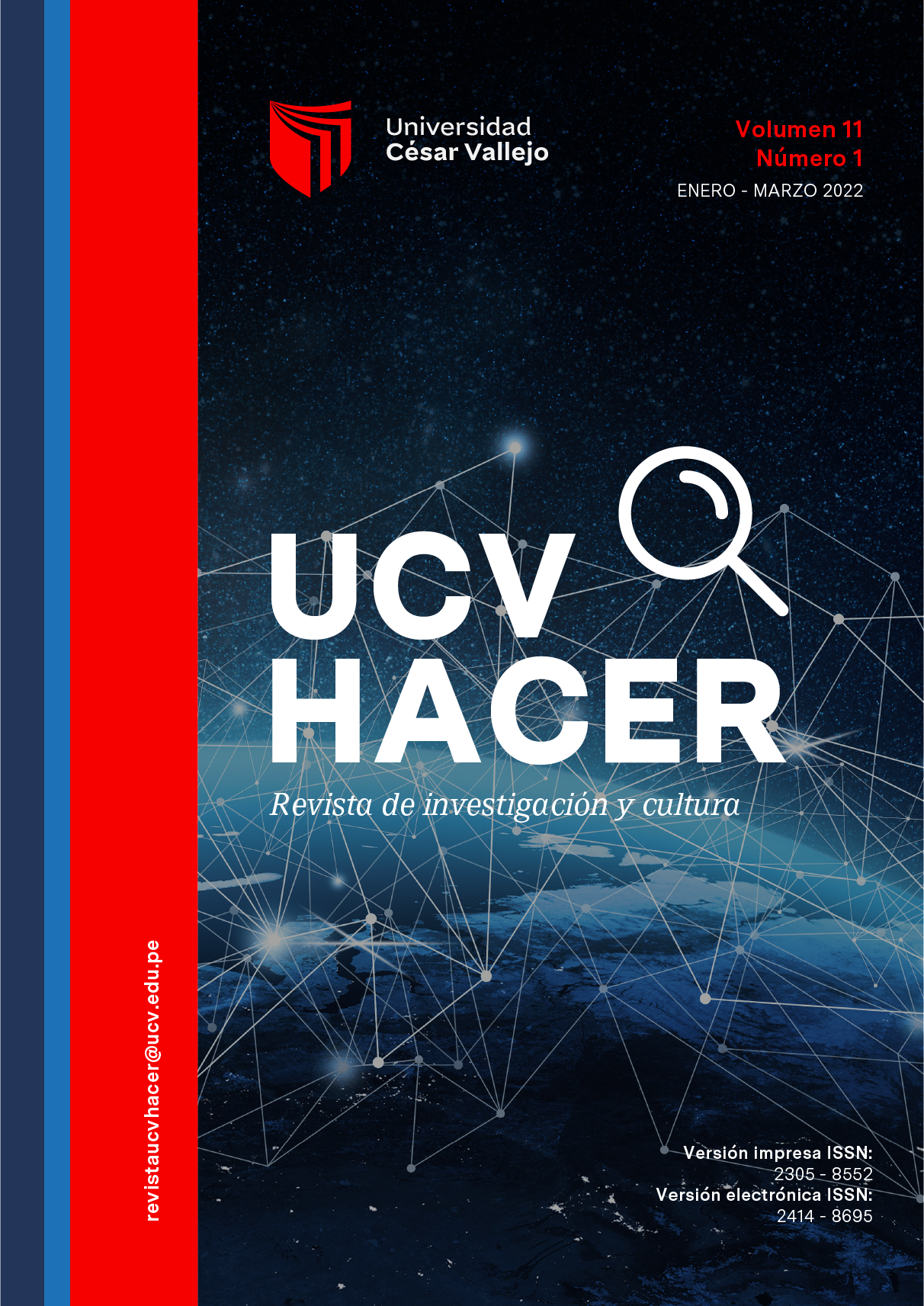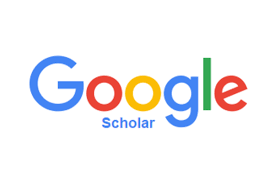Communication English strategies program to reinforce the critical and creative thinking in university students
DOI:
https://doi.org/10.18050/RevUCVHACER.v11n1a1Keywords:
Estrategias de comunicación en inglés, Pensamiento creativo, Pensamiento críticoAbstract
This research had like the main objective to design a program of English communication strategies to reinforce the critical and creative thinking in students of a private university in Chiclayo. According to its purpose the type is a basic research with a mixed research approach. The tool used for recollecting data was a questionnaire which was applied to 19 students from the fourth cycle of a program in the university César Vallejo in Chiclayo. As a result, the presence of the three levels of the critical and creative thinking is observed: initial, process and achievement. The highest percentage of the students were located in the
level process of the development of this thinking, in the same way there is an important percentage of students that require to reinforce the dimensions of the critical and creative thinking to be able to give an opinion and to stablish a critical position, and also to elaborate a new creation and obtain original productions. It is concluded that the program of communicative strategies in English with basis in pedagogical, scientific and epistemological foundations, and with phases pre stablished and connected
make better the development of the critical and creative thinking.
Keywords: English strategies of communication, critical thinking, creative thinking.
References
Alfaro, D. (2018). Queremos ciudadanos con pensamiento crítico respecto a lo que leen. Agencia peruana de noticias Andina. https://andina.com.pe/agencia/noticia-minedu-queremos-ciudadanos-pensamiento-critico-respecto-a-que-leen-732358.aspx
Arias, W. (2018). Niveles de creatividad en universitarios con estilos de aprendizaje de tipo divergente. Alternativas cubanas en Psicología, 6(17), 92-102. https://www.researchgate.net/publication/324844811_niveles_de_creatividad_en_universitarios_con_estilos_de_aprendizaje_de_tipo_divergente
Arjona, M. (2010). Importancia y elementos de la programación didáctica. Hekademos Revista educativa digital, 3(7), 5-22. https://dialnet.unirioja.es/servlet/articulo?codigo=3745653
Foro de la UNESCO. (2020). Imaginar el mundo de mañana. Voces de mujeres. Aurélie Jean. https://www.youtube.com/watch?v=NNbcJGzm_JA&t=133s
Bisquerra, R. (2009). Metodología de la investigación educativa. Editorial La muralla. https://doi.org/10.1016/S0212-6567(03)70728-8
Chávez, P. (2018). Habilidades de Pensamiento Crítico y Niveles de Comprensión Lectora de los Alumnos de la Especialidad de Lengua Española y Literatura de la UNE, La Cantuta, 2018. http://repositorio.une.edu.pe/bitstream/handle/UNE/4253/TD%20CE%202216%20C1%20-%20Chavez%20Mauricio%20Pilar%20Marlene.pdf?sequence=1&isAllowed=y
Durán, R. Guillén, C. Marigómez, L. Martínez, R. Montes, C. Sainz, J. Sánchez, S. (2004). Habilidades educativas en lenguas extranjeras. Secretaría General Técnica, Ministerio de Educación y Ciencia de España.
Gasca, L. (2017). El desarrollo del pensamiento crítico y de una conciencia social crítica: metodología y prácticas pedagógicas de un curso de nivel intermedio B1 de ELE. Revista Internacional de Lenguas Extranjeras, 1(6), 9-30. https://doi.org/10.17345/rile6.1826
Han, C. y Kwon, R. (2017). Issues and Implementation of the 2015 Revised Curriculum. Seúl: Korea Institute for Curriculum and Evaluation. http://www.kice.re.kr/boardCnts/view.do?boardID=15053&boardSeq=5015396&lev=0&m=0301&searchType=S&statusYN=W&page=1&s=english
Isanova, N., Ravshanova, T. & Abrayimova N. (2019). Use of effective teaching aids in foreign language lessons. JSPI Scientific Publications Archive, 5(12), 131-134. https://doi.org/10.36713/pra2013
Loble, L. (2018) Aprender a vivir en la era de la IA. https://es.unesco.org/courier/2018-3/aprender-vivir-era-ia
Martínez, A., Remache, N., y Carrera, G. (2020). The incidence of the Communicative strategies in the English language learning. Polo del Conocimiento, 5(7), 249-267. http://doi.org/10.23857/pc.v5i7.1513
Ministry of Education Singapore (7 de octubre de 2019). Response to the adjournment motion by associate Professor Walter Theseira: A liberal education and corruption of the youth of Singapore. https://www.moe.gov.sg/news/parliamentary-replies/20191007-response-to-the-adjournment-motion-by-associate-professor-walter-theseira-a-liberal-education-and-corruption-of-the-youth-of-singapore
Morante, P. (09 de julio de 2019). La música y el juego permiten un desarrollo más integral. La Industria. https://www.laindustriadechiclayo.pe/noticia/1565668143-la-musica-y-el-juego-permiten-un-desarrollo-mas-integral-
Organización para la cooperación y el desarrollo económicos, (2020). Objetivos de la educación para la OCDE. https://www.oecd.org/acerca/
Ortiz, A. (2017). Metodología del aprendizaje significativo, problémico y desarrollador. Editorial académica española.
Pérez. C., Hernández, J. y Alcántara, E. (2017). Pensamiento crítico y creativo en estudiantes de educación superior: un análisis desde la teoría de la actividad. http://www.comie.org.mx/congreso/memoriaelectronica/v14/doc/0705.pdf
Simón, G. (2015). Pensamiento crítico y su relación con las estrategias de aprendizaje en estudiantes de la Facultad de Educación_ de la Universidad Nacional Federico Villarreal. http://repositorio.une.edu.pe/bitstream/handle/UNE/534/TD%201520%20S1.pdf?sequence=1&isAllowed=y
Syahroni, S. (2020). Model united nations (MUN): Learning method to ehance critical thinking skill and communication skill for hihg school students. Journal of Education and Learning (EduLearn), 14(4), 495-501. http://doi.org/10.11591/edulearn.v14i4.16094
Wafunga, A. (2017). Desenvolvimento do pensamento crítico e reflexivo através do ensino da história em estudantes de licenciatura em ensino da história do Instituto Superior de Ciências da Educação de Benguela-Angola. [Tesis doctoral, Universidad de Granada]. http://hdl.handle.net/10481/47662
Downloads
Published
How to Cite
Issue
Section
License
Copyright (c) 2022 UCV Hacer

This work is licensed under a Creative Commons Attribution-NonCommercial-ShareAlike 4.0 International License.










